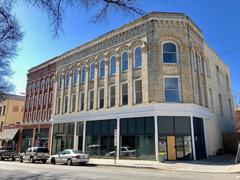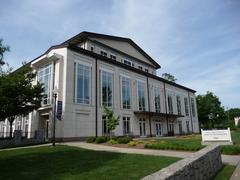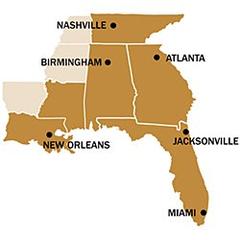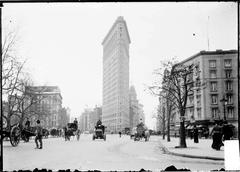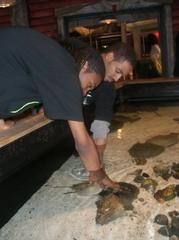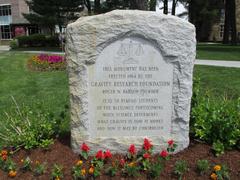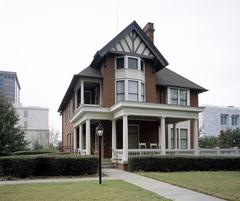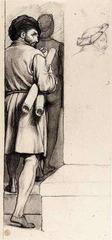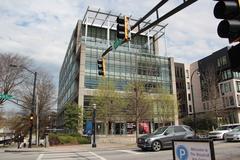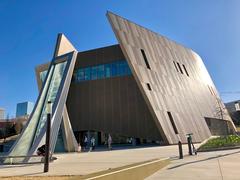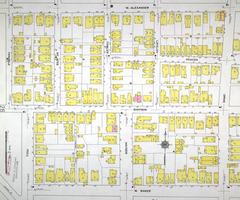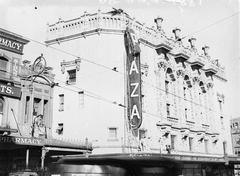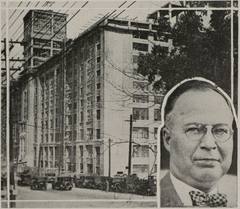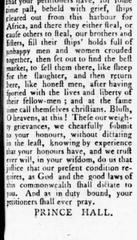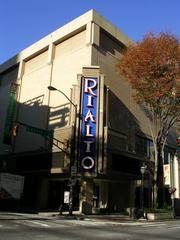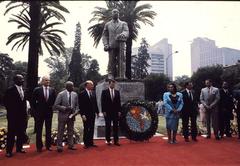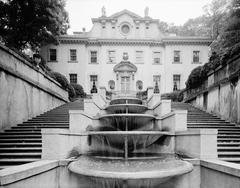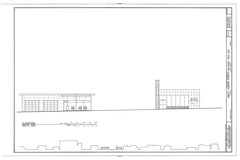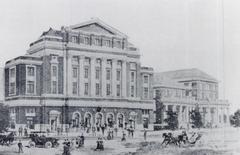Statue of Jimmy Carter Atlanta: Visiting Hours, Tickets, and Historical Significance
Date: 14/06/2025
Introduction
The Statue of Jimmy Carter in Atlanta stands as a powerful tribute to the 39th President of the United States, reflecting his enduring legacy of public service, humanitarianism, and peace. Located at two prominent sites—the Georgia State Capitol and the Carter Center—the monuments and their associated museums invite visitors to explore the life and achievements of a leader whose impact resonates locally and globally. This comprehensive guide provides essential information on visiting hours, ticketing, accessibility, nearby attractions, and the historical and artistic significance of the Jimmy Carter statues. Whether you are a history enthusiast, an art lover, or a traveler seeking to connect with Atlanta’s heritage, this resource will help you plan a meaningful visit.
Table of Contents
- Overview of the Jimmy Carter Statue and Museum Sites
- Visiting Hours and Ticket Information
- Accessibility and Visitor Amenities
- Historical Background and Significance
- Symbolism and Artistic Considerations
- Travel Tips and Getting There
- Nearby Attractions and Suggested Itineraries
- Guided Tours and Special Events
- Photography and Media Recommendations
- Frequently Asked Questions (FAQ)
- Conclusion and Planning Resources
Overview of the Jimmy Carter Statue and Museum Sites
Georgia State Capitol
Unveiled in 1994 and sculpted by Frederick E. Hart, the Jimmy Carter statue at the Georgia State Capitol captures Carter’s approachable nature and passion for the environment. Situated on the west front of the Capitol at 206 Washington St SW, this bronze figure stands as a symbol of Carter’s deep roots in Georgia and his commitment to public service.
Carter Center and Presidential Library
The Carter Center grounds feature additional tributes to Carter’s legacy, including the Jimmy Carter Presidential Library and Museum. Here, visitors can explore immersive exhibits detailing Carter’s presidency, humanitarian work, and diplomatic efforts. The museum includes a replica Oval Office and interactive displays on global diplomacy.
Millennium Gate Museum
Located in Midtown’s Atlantic Station, the Millennium Gate Museum honors Carter’s contributions as part of Atlanta’s classical monuments, offering further context and educational opportunities related to his life and service.
Visiting Hours and Ticket Information
- Statue at Georgia State Capitol: The outdoor statue is accessible year-round during daylight hours. There is no admission fee.
- Georgia State Capitol Building: Open Monday–Friday, 8:00 AM–5:00 PM. Free guided tours are available on weekdays.
- Carter Presidential Library and Museum: Open Monday–Saturday, 9:00 AM–5:00 PM; Sunday, 12:00 PM–5:00 PM. Admission: $10 for adults, $8 for seniors and students, free for children under 12 (Jimmy Carter Presidential Library).
- Millennium Gate Museum: Open Tuesday–Sunday, 10:00 AM–5:00 PM. Admission: $10 for adults, with discounts for seniors, students, and military personnel. Children under 16 enter free (National Monuments Foundation).
Note: Check official websites for the most current hours and ticket prices.
Accessibility and Visitor Amenities
- Wheelchair Accessibility: All sites, including the statue areas and museums, are equipped with paved paths and ramps, making them accessible for visitors with mobility challenges.
- Restrooms: Public restrooms are available inside the Capitol during open hours; museum facilities are accessible to all ticket holders.
- Parking: Paid parking is available near the Capitol and Carter Center, with additional options at Atlantic Station for the Millennium Gate Museum.
- Public Transit: The nearest MARTA station to the Capitol is Georgia State Station (Blue and Green Lines); bus routes serve both the Carter Center and the museum.
- Visitor Centers: Information centers and assistive listening devices are available at museum sites.
Historical Background and Significance
The Jimmy Carter statue represents Georgia’s evolving identity and commitment to honoring figures who embody justice, equality, and service. In 2025, Georgia State Senator Jason Esteves proposed replacing the statue of Confederate Vice President Alexander Stephens in the U.S. Capitol’s National Statuary Hall with one of Carter, reflecting a broader movement away from divisive historical memorials (11Alive News).
Carter’s legacy as the 39th President is marked by achievements in domestic policy, global diplomacy, and post-presidential humanitarian work through The Carter Center. His Nobel Peace Prize (2002) and advocacy for human rights make the statue a symbol of progress, unity, and public service (Atlanta Civic Circle).
Symbolism and Artistic Considerations
Frederick E. Hart’s sculpture presents Carter in khakis with rolled-up sleeves and outstretched arms—an embodiment of humility, openness, and leadership. The inclusion of a trout on his belt buckle references Carter’s environmentalism and love for the outdoors. The statue stands within an elliptical plaza, framed by granite benches inscribed with values that defined Carter’s life, such as “humanitarian” and “peacemaker.”
Design elements, including the use of Georgia white marble and the planting of a live oak tree for Carter’s 100th birthday, reinforce local connections and the enduring nature of Carter’s legacy.
Travel Tips and Getting There
- Best Times to Visit: Early mornings and weekdays are ideal for a quieter experience and optimal photography conditions. Spring and fall offer pleasant weather.
- What to Bring: Comfortable walking shoes, water, sunscreen, and a camera.
- Safety: Expect visible security, especially during legislative sessions or special events.
Directions
- Georgia State Capitol: 206 Washington St SW, Atlanta, GA 30334
- Carter Center/Presidential Library: 441 Freedom Parkway NE, Atlanta, GA 30307
- Millennium Gate Museum: 395 17th St NW, Atlanta, GA 30363
Nearby Attractions and Suggested Itineraries
Enhance your visit by exploring these Atlanta landmarks:
- Martin Luther King Jr. National Historical Park: Tour Dr. King’s childhood home and historic Ebenezer Baptist Church.
- Centennial Olympic Park: Enjoy green space and public art celebrating Atlanta’s Olympic legacy.
- Atlanta History Center: Discover exhibits on Georgia’s history and culture.
- Atlantic Station: Shop and dine near the Millennium Gate Museum.
Combine the statue visit with the Carter Presidential Library and other local sites for a full day of cultural exploration.
Guided Tours and Special Events
- Capitol Guided Tours: Available weekdays, including insights into the Carter statue and Georgia’s political history.
- Museum Tours: Arrange in advance for detailed explorations of Carter’s life and legacy at the Carter Center and Millennium Gate Museum.
- Special Events: The statue and Capitol grounds sometimes host commemorative ceremonies and educational programs. Check official event calendars for updates.
Photography and Media Recommendations
- Best Angles: Capture the statue with the Capitol dome in the background for dramatic effect; morning or late afternoon light is ideal.
- Visual Resources: High-quality images and virtual tours are available through the Georgia State Capitol and Carter Center websites.
- Interactive Maps: Use online maps to plan your route between historical sites.
Frequently Asked Questions (FAQ)
Q: Is there an admission fee to visit the Statue of Jimmy Carter?
A: No, visiting the outdoor statue at the Capitol is free. Museums and the Carter Presidential Library have modest admission fees.
Q: What are the best visiting hours?
A: Daylight hours, especially early mornings and late afternoons, are best for photography and fewer crowds.
Q: Are the sites accessible for visitors with disabilities?
A: Yes, all locations are designed to be accessible, with paved paths and appropriate facilities.
Q: Are guided tours available?
A: Yes, at both the Georgia State Capitol and associated museums.
Q: Where can I park?
A: Paid parking is available near all major sites; public transportation is also recommended.
Conclusion and Planning Resources
The Statue of Jimmy Carter in Atlanta offers an inspiring and accessible glimpse into the legacy of a president known for humility, justice, and global leadership. By combining visits to the Capitol, Carter Center, and nearby museums, you can engage deeply with Georgia’s historical narrative and the enduring impact of Jimmy Carter. Plan your trip during off-peak hours, use MARTA for convenient access, and enhance your experience with audio guides from the Audiala app.
For the latest updates on visiting hours, ticketing, special events, and accessibility, refer to the official resources below:
- Georgia State Capitol
- Jimmy Carter Presidential Library
- National Monuments Foundation
- Carter Center Visitor FAQs
- Audiala Guided Tours
- 11Alive News Coverage
- Atlanta Civic Circle Article
Plan your visit today to celebrate the spirit of President Jimmy Carter and experience Atlanta’s rich historical landscape. Download the Audiala app for guided tours and real-time updates, and follow key institutions on social media for the latest news and events.



